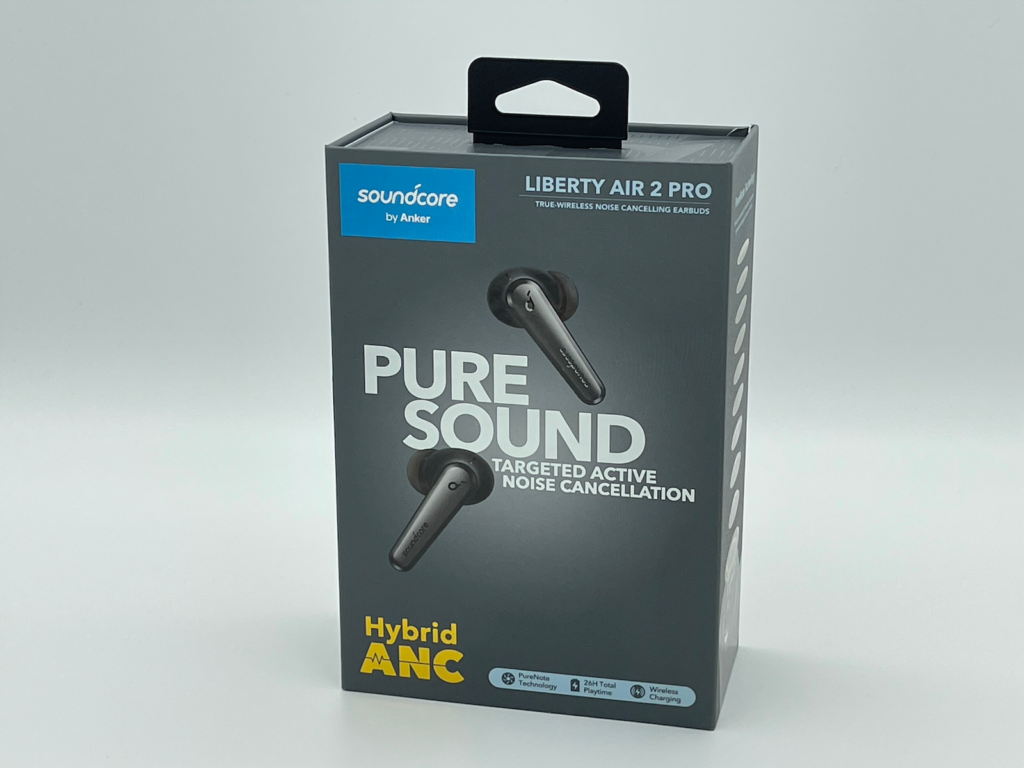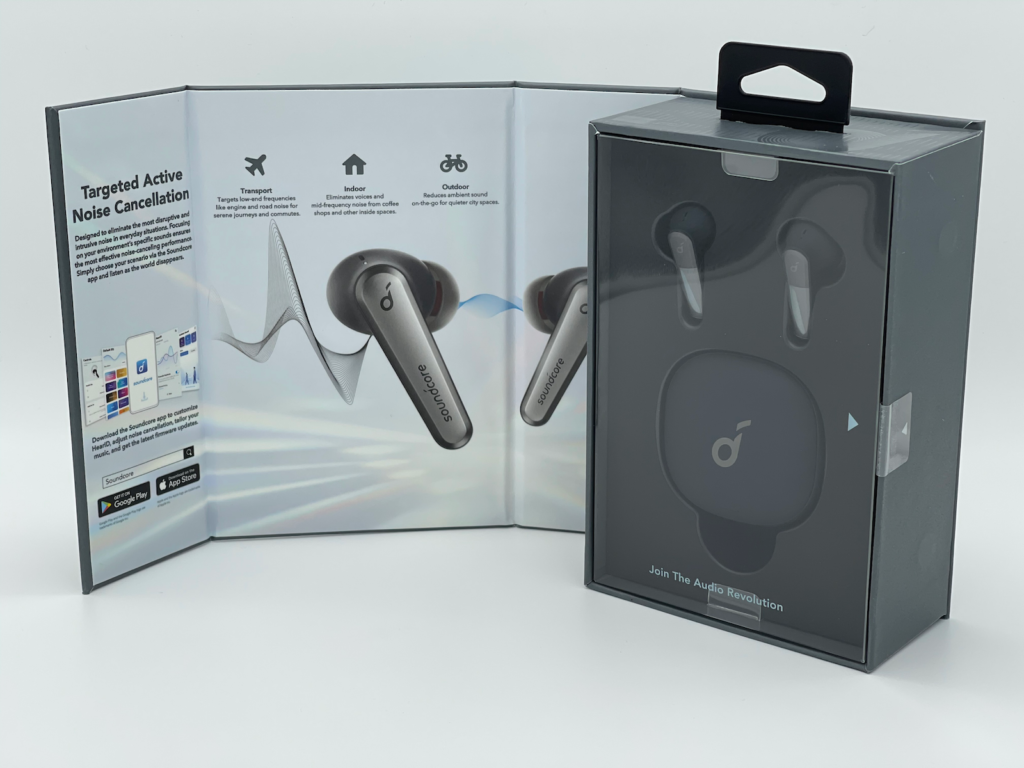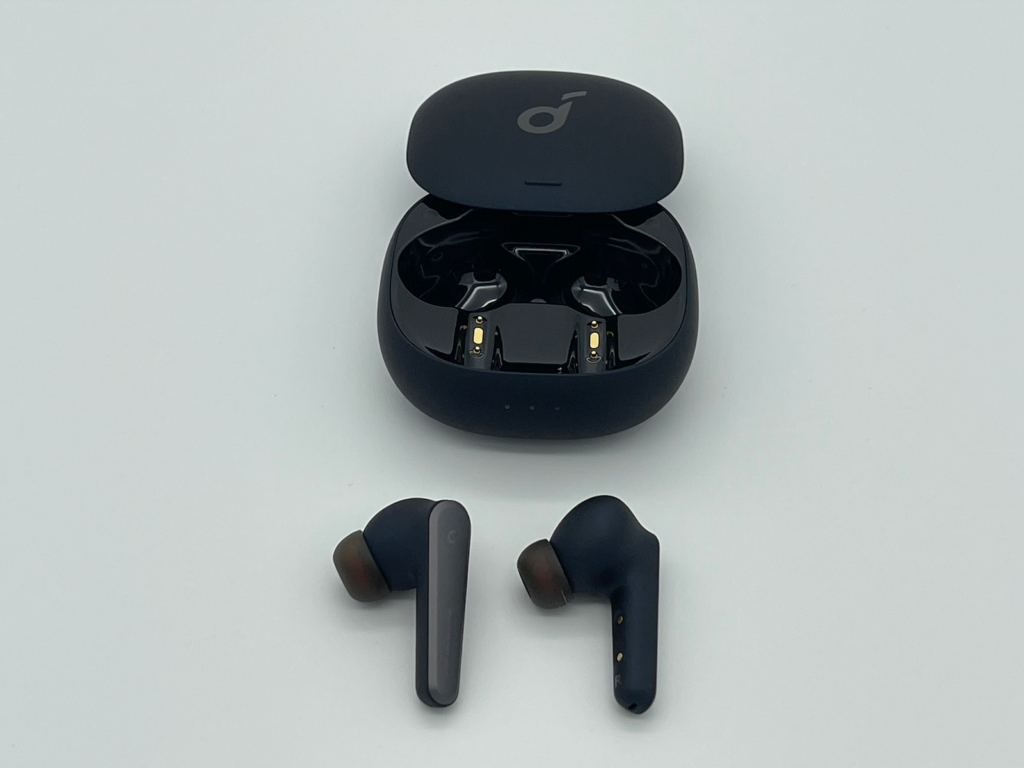The popular accessory manufacturer Anker introduced the brand new Anker Soundcore Liberty Air 2 Pro earlier this year. Today it is clear – the new audio accessory is a real AirPods Pro competitor.
Anker's latest addition to the Soundcore headphones, originally launched at CES announced is a real AirPods Pro competitor. In addition to a number of useful functions, the price makes you sit up and take notice. Below you will find the technical details:
- 11mm Purenote™ audio drivers
- Precise active noise isolation
- 6 integrated microphones for crystal-clear calls
- multi-mode transparency function
- Individual sound profile with HearID
- 7 hours of battery life (26 hours with charging case);
- 6 hours of battery life in ANC mode (21 hours with charging case)
- Motion detection for automatic play / pause
- Lightning-fast recharge: 15 minutes for 2 hours of power
- Automatic switching master/slave
- IPX4 water protection class
- Type-C & wireless charging

The Liberty Air 2 Pro builds on its predecessor, the Liberty Air 2 earbuds, with Active Noise Cancelling (ANC) and PureNote driver technology. Its design is more elegant and lighter than its predecessor.
The first impression
They come in similar packaging to their predecessors, with a compact, pocket-sized USB-C charging case that extends their seven-hour battery life to 26 hours, which beats the AirPods Pro but is well below the Liberty 2 Pro's 32 hours. However, the 26 hours is definitely enough for casual music listening, podcast episodes, and the odd phone call or conference call. As for the Liberty Air 2 Pros' voice quality on phone calls, it's impeccable. That's probably because the buds have six noise-cancelling microphones. There are touch control points that can be mapped within the Soundcore app for play, pause, next, volume up/down, ANC on/off, and voice assistant activation, which is definitely useful.

Anker Soundcore Liberty Air 2 Pro impresses with customization
Another handy feature is pausing playback when you remove an earbud - ideal for short social interactions. The earbuds are IPX4 waterproof, making them suitable for everyday use and workouts. Compared to the Apple headphones they're designed to compete with, the Anker Soundcore Liberty Air 2 Pro have a whole host of features that the AirPods Pro unfortunately can't match: Customization. In the companion app, Anker offers access to different sound modes, detailed personalization of the touch controls, and even the ability to completely customize the EQ settings.
Anker Soundcore Liberty Air 2 Pro: The sound quality

Anker says the Liberty Air 2 Pros offer pure sound thanks to their PureNote technology. The design allows for "45 percent more bass in a 30 percent wider frequency range." These numbers feel arbitrary and incomparable. Still, it's hard not to be impressed with Soundcore's performance in sound reproduction. The buds have been fine-tuned by Soundcore experts using feedback from 100,000 Soundcore customers, according to the company. The result is defined mids, clear highs, and punchy bass - which are enhanced even more by HearID in the Soundcore app. The sound quality is pretty respectable in the default setting, with a bass-heavy mix that can always be adjusted if the preset isn't quite enough. The active noise cancellation is also well done. The software combined with the in-ear design does a really solid job. But honestly, I have to admit that the AirPods Pro have the edge when it comes to ANC.
Anker Soundcore Liberty Air 2 Pro vs. AirPods Pro: The conclusion
So what is my conclusion? Let's keep it short. As an Apple fan, I have to admit that I will always prefer Apple products - even if the bitten apple is more expensive. But the Soundcore Liberty Air 2 Pro offer a really compelling alternative to the AirPods Pro at a much cheaper price. So if you are looking for a great set of true wireless earbuds with noise cancellation, I clearly recommend the Soundcore Liberty Air 2 Pro. As a reminder, the earbuds cost 129.99 euros and are available from Amazon - to the Apfelpatient Amazon Storefront. (Image: Anker)





